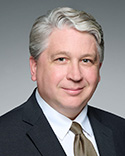
Michael Lastowski

Richard L. Renck
Most readers are likely familiar with the recent trend of Delaware corporations adopting forum-selection bylaws dictating that all shareholder litigation filed against an entity involving the internal affairs of the corporation must be filed in a state court in Delaware. In late 2013, however, United Technologies Corp. attempted to condition a stockholder's inspection of documents pursuant to Section 220 of the Delaware General Corporation Law on his entry into a confidentiality stipulation containing a clause requiring any litigation that was the fruit of the inspection to be prosecuted in Delaware. In a transcript ruling in Treppel v. United Technologies, C.A. No. 8624 (Del. Ch. Jan. 13, 2014), Vice Chancellor Sam Glasscock III rejected such a condition to a statutory inspection. The facts, arguments of the parties and the rulings of the court, as transcribed, are highlighted below.
In 2010, Vice Chancellor J. Travis Laster expressed in his opinion in In re Revlon Shareholders Litigation, No. 4578-VCL (Del. Ch. March 16, 2010), that charter provisions dictating Delaware as the sole forum for shareholder suits might be one way to stem the tide of multijurisdictional litigation. Advisers of Delaware corporations took that suggestion and ran with it. Indeed, by 2013, more than 250 publicly traded companies had adopted either charter amendments (in some cases) or director-adopted bylaw amendments (in most cases) along these lines.
There existed, however, some question as to whether forum-selection bylaw amendments were valid, and in February 2012, a dozen complaints were filed challenging such bylaws. In June 2013, Chancellor Leo E. Strine Jr. upheld the validity of forum-selection bylaws in Boilermakers Local 154 Retirement Fund v. Chevron, 73 A.3d 934 (Del. Ch. 2013). While the plaintiffs initially appealed the decision, they eventually dismissed the appeal before the Supreme Court could consider and rule on the issue.
In 2013, UTC decided to take things one step further-and apparently a step further than the Chancery Court was willing to go. As described in the transcript of the Treppel trial, a stockholder, Lawrence Treppel, made a demand on the UTC board that it investigate and, if appropriate, institute litigation against alleged wrongdoers relating to the circumstances surrounding a $75 million fine UTC was forced to pay to the Department of Justice. UTC rejected that demand. Treppel then asserted his statutory inspection rights pursuant to Section 220 of the DGCL seeking to understand the UTC board's actions in refusing his demand.
As is typical for Section 220 inspections, UTC conditioned any inspection upon the entry into a confidentiality stipulation. The parties, however, were never able to reach agreement on the form of a confidentiality agreement, as UTC demanded that the agreement contain a clause requiring any litigation Treppel might file as a result of the inspection be filed only in Delaware, according to the transcript. Treppel refused, and the matter was presented to Glasscock in a one-day trial. UTC argued, among other things, that Treppel's refusal to accede to the forum-selection clause was evidence that he did not state a proper purpose for the inspection under Section 220(b), and even if he did, the court was well within its discretion pursuant to Section 220(c) to condition the inspection on the entry into a confidentiality agreement containing the forum-selection clause.
According to the transcript, UTC argued that Treppel could not have a proper purpose for the inspection because there existed evidence that any suit he might file following the inspection would likely be filed in a jurisdiction other than Delaware-an eventuality Treppel refused to foreswear. As UTC argued, because the Chancery Court has previously articulated its views that shareholders have no legitimate need to file litigation relating to the internal affairs of a Delaware company in jurisdictions other than Delaware's state courts, any shareholder intending to file such litigation outside of Delaware would be acting in a manner inimical to the best interests of the corporation. That, UTC contended, would not serve as a proper purpose for a statutory inspection. Glasscock, however, was unconvinced, and refused to find that a shareholder would not have a proper purpose for inspection if he or she refused to commit to bringing any litigation flowing from the inspection in Delaware. The court noted that to the extent the company had adopted a forum-selection bylaw, as had UTC, the company would possess an avenue to challenge the prosecution of litigation in a non-Delaware forum.
UTC's secondary argument, according to the transcript, was that the court should exercise its discretion pursuant to Section 220(c) to condition the inspection on reasonable terms, such as the condition that any litigation be prosecuted in Delaware. While Glasscock agreed with UTC that Delaware was the preferred forum for litigation addressing the internal affairs of Delaware corporations, he found that the requested condition was an undue burden on a shareholder's statutory inspection rights. Glasscock likened the measure to a "prophylactic anti-suit injunction" and rejected UTC's request to include it as a term in the confidentiality stipulation.
At the close of the ruling, UTC's counsel indicated that it would likely appeal the ruling, so this may not be the last word on the issue.
Michael R. Lastowski is a member of Duane Morris and the head of its Wilmington office. Licensed to practice in Delaware, Pennsylvania and New York, he primarily represents Chapter 11 debtors.
Richard L. Renck is a partner in the firm's Wilmington office. His practice focuses on complex corporate and commercial litigation, including actions relating to the Delaware General Corporation Law and common-law fiduciary duties, as well as advising corporate boards, directors and committees of boards in high-stakes litigation and counseling directors and senior executives regarding issues of corporate governance.
Reprinted with permission from Delaware Business Court Insider, © ALM Media Properties LLC. All rights reserved.









